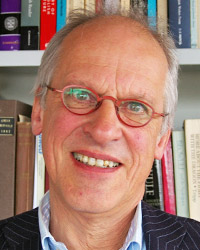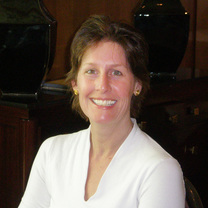Friday Plenary
Rolf H. Bremmer
University of Leiden
"Latin Loanwords in Old Frisian and the Problem of Relative Chronology"
University of Leiden
"Latin Loanwords in Old Frisian and the Problem of Relative Chronology"
|
ABSTRACT
To date, the Latin loans in the early phases of the Frisian language have remained a much unexplored field. Kluge’s important contribution on Latin and Romance loans in Germanic in Paul’s Grundriss der germanischen Philologie (1901) contains not one example from the Frisian evidence. In 1921, Holthausen (1921) published a long list of Latin and Romance loans in Old Frisian, but without any comment on, e.g., chronology or distribution. Yet, the number of Latin loans in Old Frisian is considerable and quite a few of these are early, because they show evidence of having gone through the early sound changes that turned West Germanic into Old Frisian. However, a number of Latin loans are problematic. Although they must have been borrowed after the conversion, yet phonologically they would appear to be early, e.g. ompel ‘sanctuary lamp’, Ondreus ‘Andrew’, tselke ‘chalice’. Such loan words raise questions concerning the validity of relative chronology and the vitality of sound-laws. My paper elaborates on Dekker’s (2000) informative survey of the field. Dekker, Kees. ‘Between Rüstringen and Rome: Latin Loan Words in Old Frisian’, Philologia Frisica anno 1999 (Leeuwarden: Fryske Akademy, 2000), 27–56. BIO Rolf H. Bremmer Jr (1950) studied English Language and Literature as well as Old Germanic Studies at Groningen and Oxford. In 1987 he earned his doctoral degree at Nijmegen with a thesis called The Fyve Wyttes. A Late Middle English Devotional Treatise, Edited from BL, MS Harley 2398, with an Introduction, Commentary and Glossary (Amsterdam: Rodopi, 1987). He worked as assistant professor English at Nijmegen from 1979 to 1986. He then moved to Leiden University, where he now holds the chair of English Philology. Since 2002 he has also been, by special appointment, professor of Frisian Language and Literature at Leiden. In 1994 he was Erasmus professor of Dutch History and Culture at Harvard University. Bremmer has published widely in the field of, especially, Old English and Old Frisian, including An Introduction to Old Frisian. History, Grammar, Reader, Glossary (Amsterdam and Philadelphia: John Benjamins, 2009; repr., with corrections, 201 |
Saturday Plenary
Johanna Watzinger-Tharp
University of Utah
"Validating multiple varieties in the L2 classroom"
University of Utah
"Validating multiple varieties in the L2 classroom"
|
ABSTRACT
In second language (L2) education, sociolinguistic competence is typically considered the most challenging of the four components that make up communicative competence. Sociolinguistic competence refers to the ability to interpret sociolinguistic variation, and to use language appropriately in social and situational contexts. Not only is the development of this capacity perhaps incompatible with the constraints of the L2 classroom, but the very concept of variation also puts into question the native speaker model, still central to L2 instruction and assessment. Not surprisingly, variation poses a “pedagogical problem” in the L2 classroom, one that is unlikely to be solved through particular L2 materials or textbooks. In my presentation, I will focus on developing teachers’ sociolinguistic awareness as fundamental to validating multiple varieties in the L2 classroom. Specifically, I will draw on Backward Design, in particular the six facets of understanding, for integrating the notion of sociolinguistic varieties and variation into teacher education. BIO Johanna Watzinger-Tharp received her Ph.D. from the University of Texas at Austin in Applied Linguistics, and is currently Associate Professor at the University of Utah with a dual appointment in Languages & Literature and Linguistics. She also serves as Associate Dean for Interdisciplinary & International Programs in the College of Humanities. Her research focuses on the intersections of variation in language, L2 methodology and teacher education and, more recently, on Utah dual language immersion program demographics and academic achievement. |



